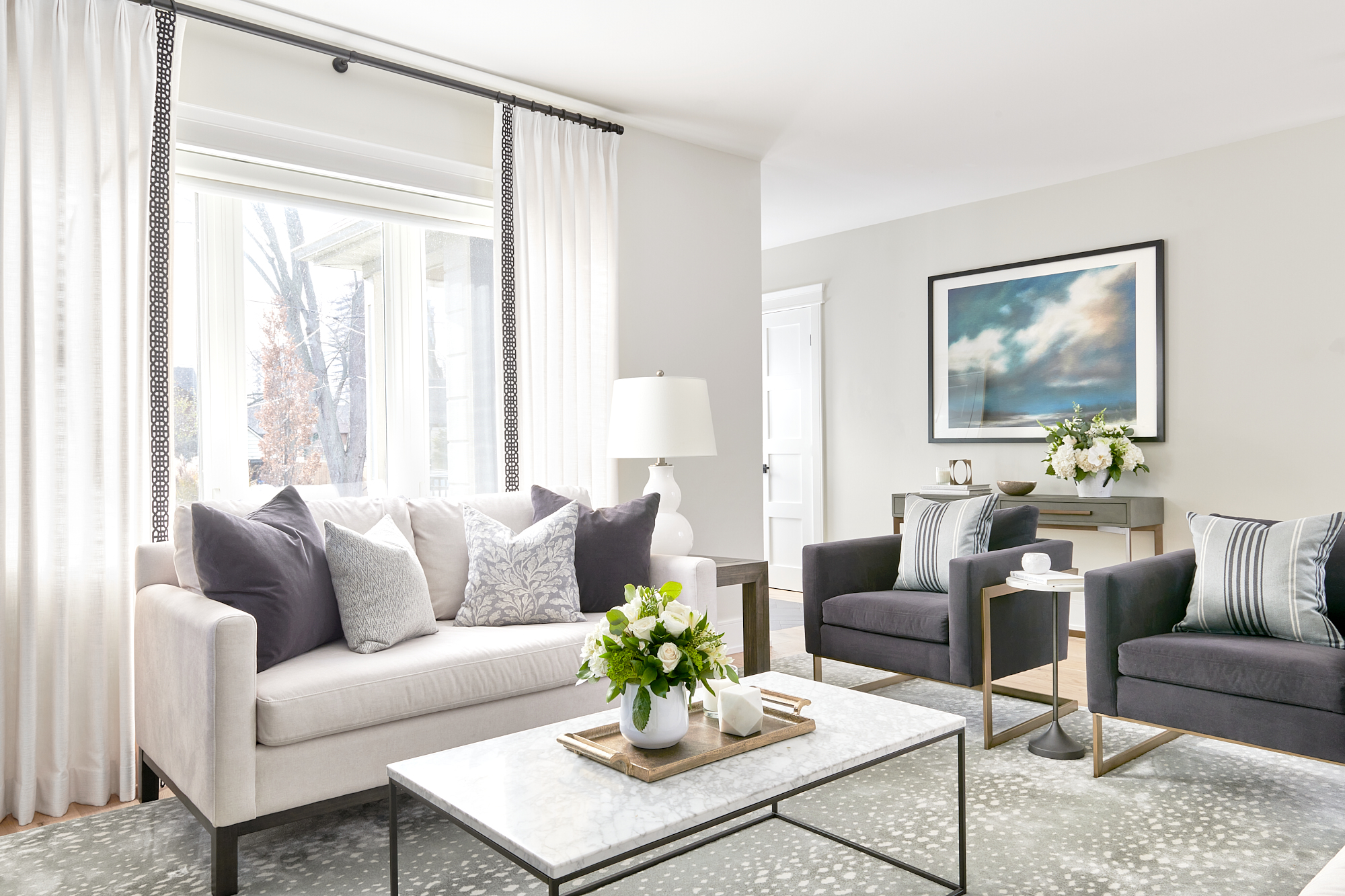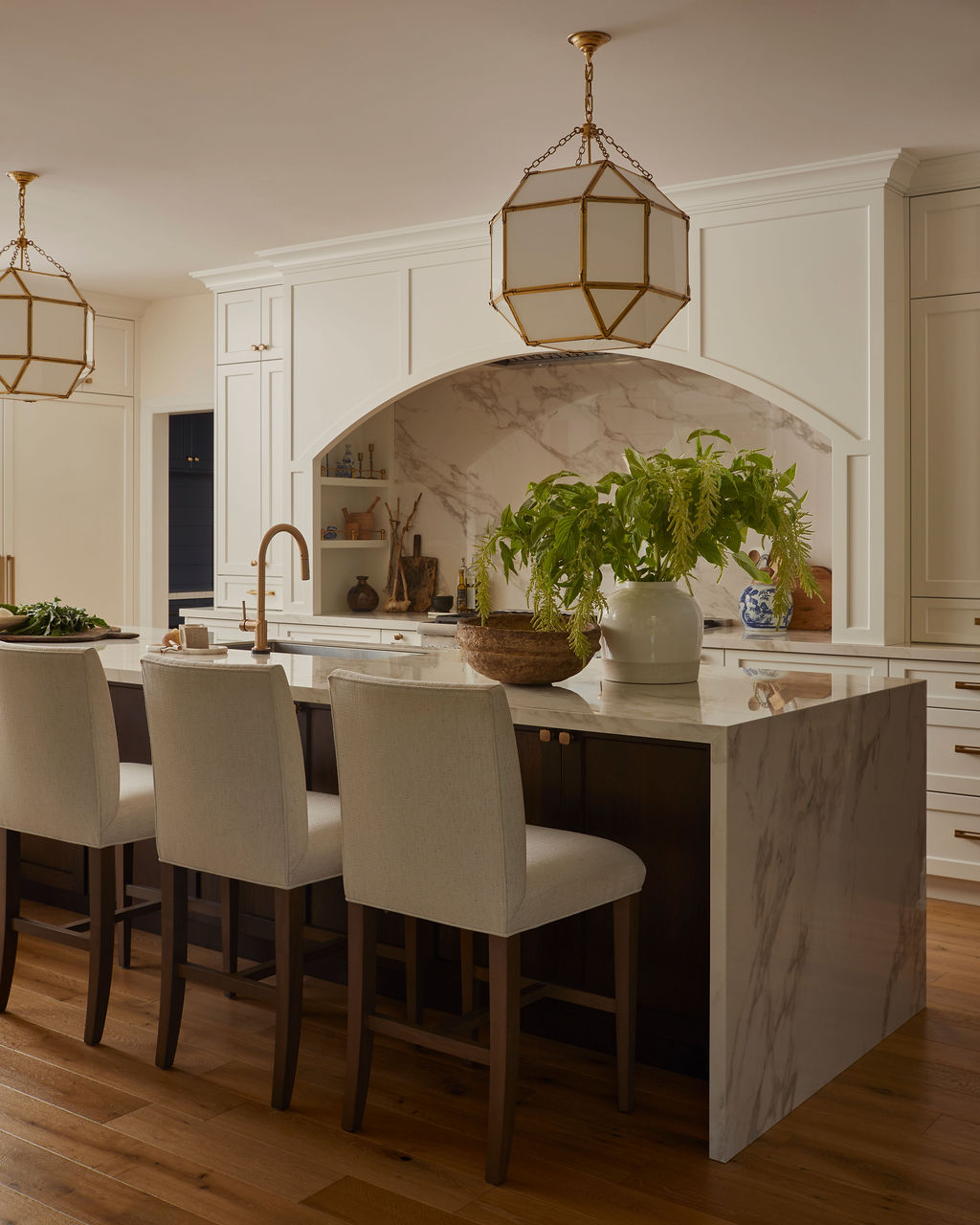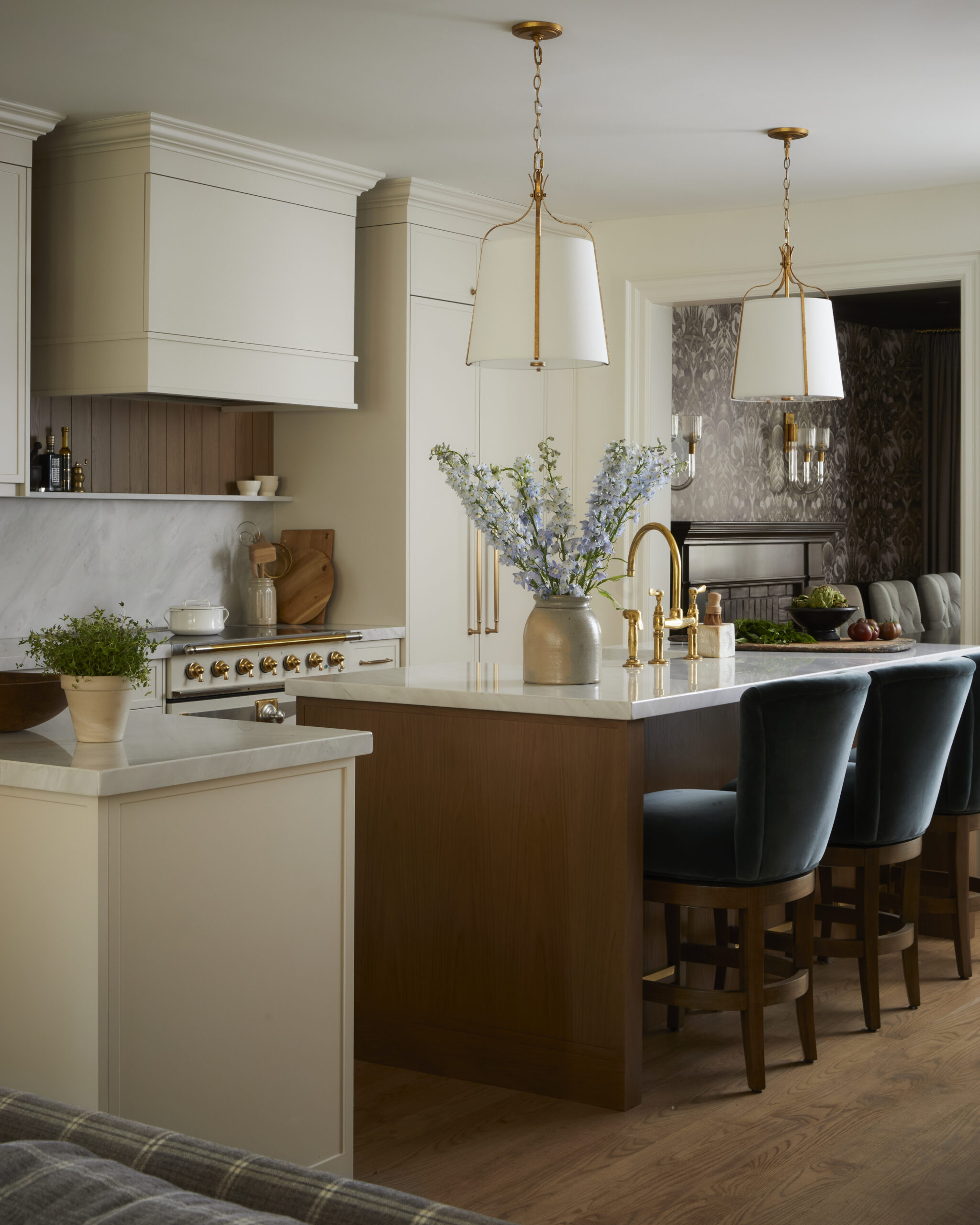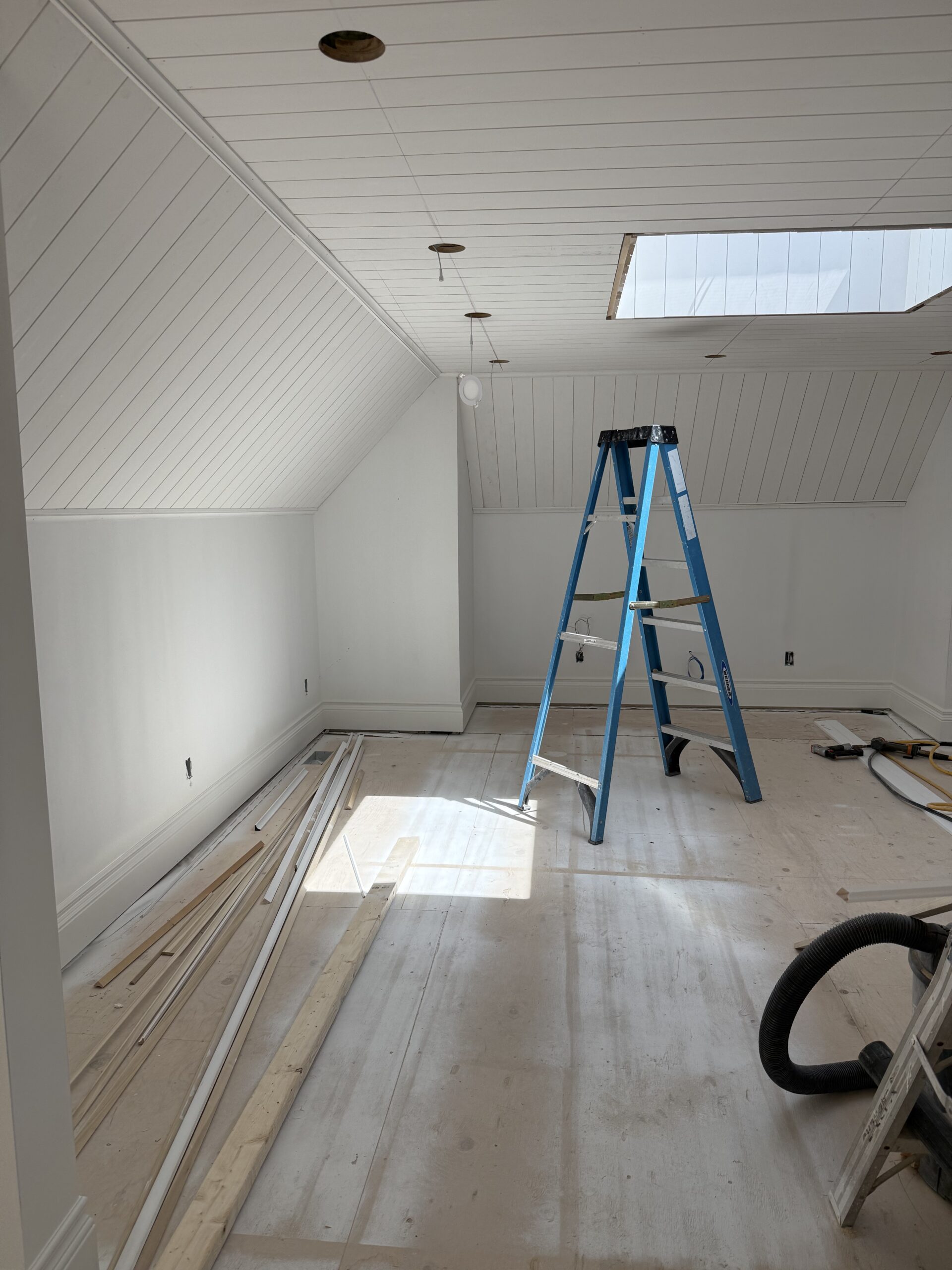In the ever-evolving world of interior design, one style that has maintained popularity for its timeless allure is transitional interior design. Have you ever wondered, “What is transitional interior design style?” Well, you’re in for a treat. In this blog post, I’ll unravel this popular design style, explore its elements and differences from traditional and contemporary styles, and give tips for implementing it in your home. Let’s dive in, shall we?

What is Transitional Interior Design Style?
Transitional interior design can be described as a harmonious bridge between traditional and contemporary styles. It marries the classic elegance of traditional design with the clean lines and simplicity of contemporary design, creating a sophisticated yet comfortable ambiance. The goal is to strike a perfect balance, offering a timeless and up-to-date space. If you read my blog, then you know that I’m all about timeless interiors and not following trends, so yes, I love transitional interiors.
Traditional vs. Transitional Design
While traditional design is known for ornate details, rich colours, and elaborate furnishings, transitional design takes a step back and embraces a more restrained aesthetic. Transitional interior design maintains the warmth and comfort associated with traditional spaces but avoids excessive details in favour of clean lines and neutral tones. In transitional interiors, classic elements like crown moulding and intricate woodwork are seamlessly integrated with more modern colours, materials and furniture. It’s a delicate dance between the familiar and the new, resulting in a space that feels both inviting and fresh.
Contemporary vs. Transitional Design
Conversely, contemporary design is known for its more cutting-edge and minimalist approach. Transitional design, however, introduces a softer touch, offering a compromise between the starkness of a more modern style and the opulence of traditional design. Transitional spaces avoid extremes, favouring a mix of textures, colours, and materials. This style invites you to experience the best of both worlds, achieving a curated and intentional look without sacrificing warmth and comfort.
Key Elements of Transitional Interior Design
Here are five popular elements of transitional interior design:
- Neutral Color Palette: Transitional interiors often feature a mostly neutral colour scheme, allowing for timeless appeal and versatility to add pops of colour for interest.
- Blending Materials: Mixing materials is a hallmark of transitional design. Think pairing a plush sofa with a sleek glass coffee table or combining warm wood and cool metal accents.
- Balance of Old and New: Incorporate both antique and modern pieces to achieve an exciting look that tells a story.
- Simple Lines: Unlike traditional design, which embraces intricate details, transitional spaces favour clean lines for a more understated elegance.
- Comfortable Furnishings: The emphasis on comfort remains a constant in transitional design. Plush sofas, cozy rugs, and soft textiles create a welcoming atmosphere.
Creating Your Transitional Haven
Implementing transitional design in your home involves a thoughtful and deliberate approach. Begin by establishing a neutral base with versatile wall colours and classic flooring materials. To add depth and visual interest, infuse your space with various textures, from smooth metals to plush fabrics and textured wood. Mixing old and new furniture creates a balanced aesthetic, telling a unique story. Unlike traditional design, transitional spaces favour simple lines, so opt for simple and elegant furnishings. The emphasis on comfort is paramount, so invest in plush sofas, cozy rugs, and soft textiles to create an inviting atmosphere where everyone feels welcome to relax. Layer your lighting with a mix of sources, such as recessed lighting, pendant lights, and table lamps, to create a warm and inviting ambiance. Lastly, accessorize wisely by selecting a curated collection of accessories that you love without overcrowding your space.
Your Transitional Home Awaits
Are you ready to transform your living space into a seamless fusion of traditional and contemporary styles? I love transitional design and would love to guide you through the process. Whether you’re looking to revamp a single room or your entire home, our interior design team is passionate about bringing your vision to life. Contact us today to embark on your transitional design journey. Let’s create a home that reflects your style and stands the test of time – A space you’ll love coming home to every day!


